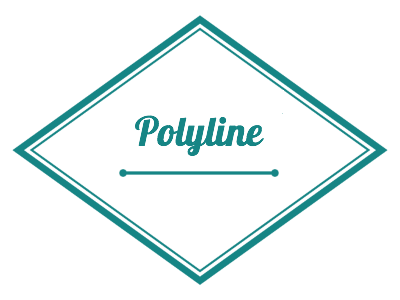Polyline encoder / decoder in Swift
- Encode a
CLLocationCoordinate2Darray to a polyline - Decode a polyline to an array of
CLLocationCoordinate2D - Encode a
CLLocationarray to a polyline - Decode a polyline to an array of
CLLocation - Encode/Decode associated levels (optional)
- 100% Unit Test Coverage
- Complete Documentation
- Continuous integration with Travis CI
- CocoaPod available
- Convert to
MKPolyline
- Convert to
GMSPolyline - Example project
- Filter locations available at a specific level
- Code Coverage with Coveralls
- Xcode 11+
- iOS 10.0+ / Mac OS X 10.12+ / tvOS 10.0+ / watchOS 3.0+ / Linux
- Swift 5.0
To use this library in your project you can use CocoaPods, Carthage, Swift Package Manager, and/or integrate it manually :
You can integrate Polyline in your Podfile like this:
pod 'Polyline', '~> 5.0'
You can integrate Polyline in your Cartfile like this:
github "raphaelmor/Polyline" ~> 5.0
To integrate Polyline into an application using Swift Package Manager within Xcode:
- Go to File ‣ Swift Packages ‣ Add Package Dependency.
- Enter
https://github.com/raphaelmor/Polyline.gitas the package repository and click Next. - Set Rules to Version, Up to Next Major, and enter
5.0.2as the minimum version requirement. Click Next.
Or to integrate Polyline into another Swift package, add the following package to the dependencies in your Package.swift file:
.package(url: "https://github.com/raphaelmor/Polyline.git", from: "5.0.2")To install Polyline manually, add Polyline.xcodeproj to an Xcode workspace, then link your application to Polyline.framework.
It is technically possible to install Polyline by adding Polyline.swift and CoreLocation.swift directly to your project, but this approach is not recommended as it may omit important files in the future.
Using [CLLocationCoordinate2D] (recommended) :
let coordinates = [CLLocationCoordinate2D(latitude: 40.2349727, longitude: -3.7707443),
CLLocationCoordinate2D(latitude: 44.3377999, longitude: 1.2112933)]
let polyline = Polyline(coordinates: coordinates)
let encodedPolyline: String = polyline.encodedPolyline
// Or for a functional approach :
let encodedPolyline: String = encodeCoordinates(coordinates)Using [CLLocation] :
let locations = [CLLocation(latitude: 40.2349727, longitude: -3.7707443),
CLLocation(latitude: 44.3377999, longitude: 1.2112933)]
let polyline = Polyline(locations: locations)
let encodedPolyline: String = polyline.encodedPolyline
// Or for a functional approach :
let encodedPolyline: String = encodeLocations(locations)You can encode levels too :
let levels: [UInt32] = [0,1,2,255]
let polyline = Polyline(coordinates: coordinates, levels: levels)
let encodedLevels: String? = polyline.encodedLevels
// Or for a functional approach :
let encodedLevels: String = encodedLevels(levels)You can decode to [CLLocationCoordinate2D] (recommended) :
let polyline = Polyline(encodedPolyline: "qkqtFbn_Vui`Xu`l]")
let decodedCoordinates: [CLLocationCoordinate2D]? = polyline.coordinates
// Or for a functional approach :
let coordinates: [CLLocationCoordinate2D]? = decodePolyline("qkqtFbn_Vui`Xu`l]")You can also decode to [CLLocation] :
let polyline = Polyline(encodedPolyline: "qkqtFbn_Vui`Xu`l]")
let decodedLocations: [CLLocation]? = polyline.locations
// Or for a functional approach :
let locations: [CLLocation]? = decodePolyline("qkqtFbn_Vui`Xu`l]")You can decode levels too :
let polyline = Polyline(encodedPolyline: "qkqtFbn_Vui`Xu`l]", encodedLevels: "BA")
let decodedLevels: [UInt32]? = polyline.levels
// Or for a functional approach :
let levels: [UInt32]? = decodeLevels("BA")Default precision is 1e5 : 0.12345 (5 digit precision used by Google), but you can specify your own precision in all API methods (and functions).
// OSRM uses a 6 digit precision
let polyline = Polyline(encodedPolyline: "ak{hRak{hR", precision: 1e6)This library tries to have consistent results with polylines generated by the Google Maps iOS SDK. The online tool for encoding polylines has some minor inconsistencies regarding rounding (for example, 0.000015 is rounded to 0.00002 for latitudes, but 0.00001 for longitudes).
This codes tries to adhere to the GitHub Swift Style Guide
- Raphaël Mor (@raphaelmor): Creator
- Tom Taylor: Maintainer
- Minh Nguyễn: Maintainer
Polyline is released under an MIT license. See LICENSE.txt for more information.




